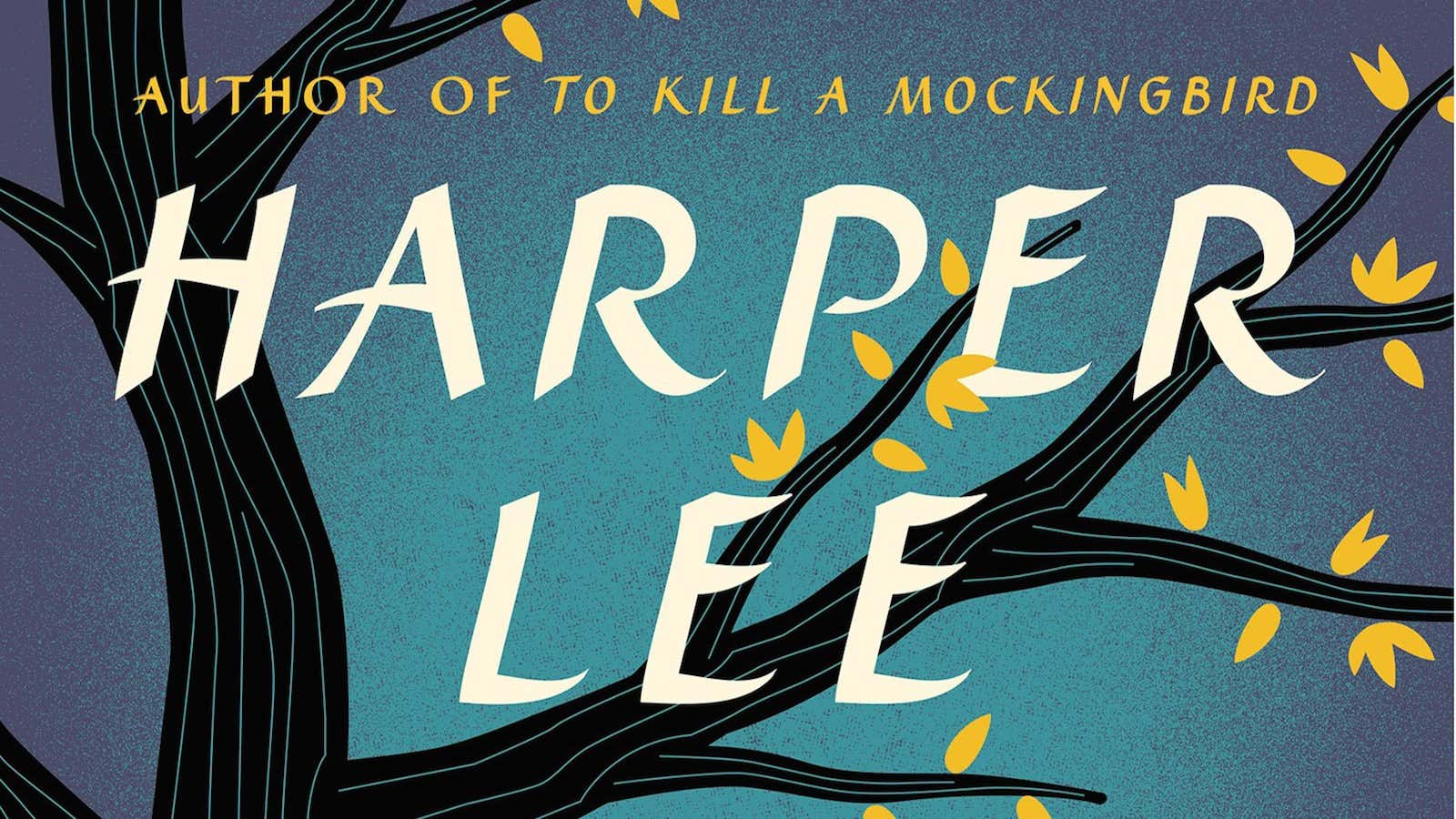Go Set a Watchman is a weird book. It has been characterized, in the media, as a sequel to Harper Lee’s 1960 classic To Kill A Mockingbird, though the first chapter—recently published online—indicates a sharp departure from the original narrative arc.
In Watchman, Atticus Finch—a white lawyer heroized for defending a black man accused of rape in Jim Crow-era Alabama—turns out to be a rabid racist. Daughter Scout, the protagonist, who has since relocated from her native Deep South to progressive New York City, must reconcile this grim reality. The New York Times’s Michiko Kakutani additionally points out that, in Mockingbird, the man who Atticus defends in court (Tom Robinson) is ultimately convicted. In Watchman, he is acquitted.
These inconsistencies in plot—both central to Mockingbird—make Watchman difficult to digest as a bona fide sequel. The manner in which Watchman was written, discovered, and published only exacerbates that tension. In a press release compiled by HarperCollins, Lee’s publisher, the author describes Watchman as a precursor to Mockingbird; a first draft, of sorts, that was retooled into the novel American readers know and love. “It features the character known as Scout as an adult woman and I thought it a pretty decent effort,” the release quotes Lee. “My editor, who was taken by the flashbacks to Scout’s childhood, persuaded me to write a novel from the point of view of the young Scout. I was a first-time writer, so I did as I was told.”
So, Watchman isn’t so much a sequel as it is an entirely separate story—in which the principle characters share names and a few characteristics—taking place in a superficially similar yet intrinsically distinct parallel universe.
Who knows what Lee intended Watchman to be—if anything. Is it a genuine novel, or merely a first draft? Is it a fully congealed story, or simply a collection of author’s notes and half-written scenes compiled and manicured by a zealous editor? “Who knows?” seems to be the running theme.
Indeed, the desire to know more about Atticus and Scout and everyone else in Maycomb, Alabama, appears to be the driving force behind this “revitalization” of Lee’s canon. (Lee’s lawyer, Tonja Carter, who has born significant criticism for the hazy manner in which Watchman came to light, has hinted that there are other, previously unpublished tales set in Maycomb.) Which poses the question: are we entitled to know more? Or need our entitlement be satiated? And is that entitlement ruining the integrity of children’s literature?
I blame J.K. Rowling.
Now, to be clear, I also love J.K. Rowling. I am a part of the generation of Anglophone readers weaned on the Harry Potter septet. It was foundational—the springboard from which I leapt to C.S. Lewis, J.R.R. Tolkien, Lewis Carroll, Jules Verne, J.D. Salinger, and beyond.
But Rowling has fundamentally changed the way we think about and consume children’s literature. In the years since its first installment was published, Harry Potter has blossomed into arguably the most successful literary franchise in decades, replete with Hollywood blockbusters, action figures galore, even a Florida theme park. And it might be said that Rowling’s convictions have changed as her stories, originally scribbled on napkins in an Edinburgh cafe, have expanded into pop-cultural touchstone territory.
Rowling has previously been pretty clear about her intention to limit the boy wizard’s story to seven books. However, since the series culminated, she has regularly released new information about characters and settings through her “Pottermore” website. She has written a screenplay, with an entirely new cast of characters, set in Harry’s universe. She is, in essence, both satiating an appetite for canonical information and simultaneously cultivating it.
And this, in a way, somewhat redefines the traditional thinking about written stories. Narrative arcs no longer need to be quality standalones—merely episodes within a broader universe. Whether this dilutes the quality of the narrative is a matter for debate, but it does tell us something poignant about how consumption of art and media is changing. Narrative is being supplanted by setting. We thirst more for the trivial details of a constructed universe than the story it was built to sustain. (See also: the Marvel movie universe.)
Perhaps Harry Potter is a story that lends itself to such obsession with detail. Maybe it qualifies as a kind of exploration. But, with regards to Go Set A Watchman, this hunger for more, at any expense, seems like it might confuse more than satisfy lovers of Lee’s work. Doubly so, considering Lee’s past stances toward any attempted commodification or bastardization of Mockingbird. It was a well-guarded universe.
Therein lies the central difference between Rowling and Lee: Rowling is still very much in control of her literary estate. She decides what information is made available to the adoring public, when and how. Lee, 89-years-old and still dealing with the reverberations of a devastating 2007 stroke, may not be. (Jezebel’s Michelle Dean reported in 2014 that Lee “can’t see and can’t hear,” and will “sign anything put before her by any one in whom she has confidence.”)
All of this poses a rather sad question about the merits of Watchman: has our hunger for additional information about Atticus and Scout and the denizens of Maycomb ameliorated or damaged our understanding of this American classic? In wanting more, are we left with less?




